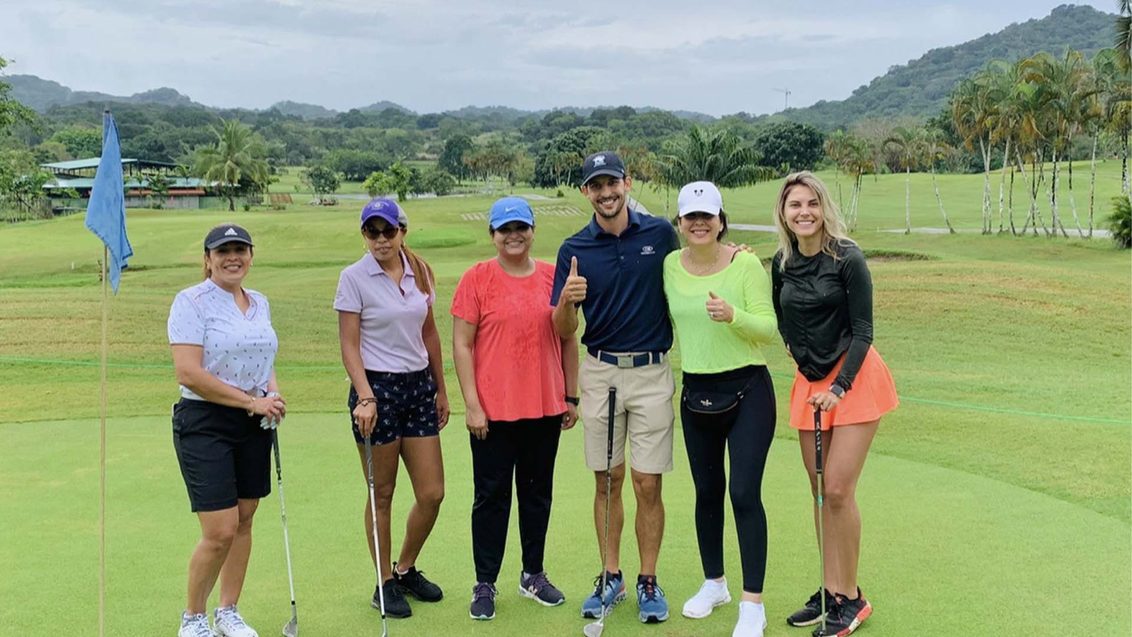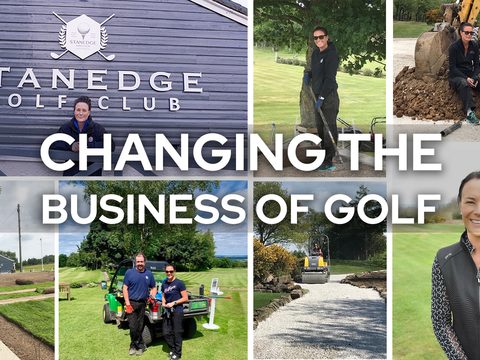Golf ‘goosebumps’ in Panama

The question ‘What does building a golf community mean to you?’ has a deeper meaning to Panama City golf coach Rafael Machado.
Growing up in Venezuela, without the safe environment at the golf club where he learned the game, he would have been at risk of harm in the often dangerous streets of the South American country.
Now in Panama, Machado has come full circle as he is yet again witnessing the togetherness golf brings.
Working with women’s program love.golf since 2018, Machado proudly states 60-70 women – from entrepreneurs to company directors – are now enrolled, with 25 women forming a community that meet every Saturday and a core of about 15 really bonding over their newfound passion.
Panama is the first country in Latin America to roll out love.golf coaching experiences: the community spirit and opportunity for growth in all facets of the game that have followed are only of benefit to golf’s longevity.
“There’s a network, so we’re not alone trying this out in Panama, it’s based in studies. When women hear about the brand they already know they’re not alone either,” Machado told Syngenta.
“If they go to Spain, England, Canada, Dubai, they will be able to meet other women there too. I think that’s special. When we tell them Panama is the first country in Latin America with love.golf they get goosebumps.”
It wasn’t all just turn up, be greeted, and away you go however. Machado said they initially faced resistance as they were viewed as competition.
“When you’re trying to grow something like this you are pushing the boundaries, and a lot of people don’t want to do it. When we started we had about two-three months where we had to stop because we were doing something so different.
“Golf pros and head pros didn’t want to follow up with it, so we had to sell it in a different way.”
Changing history
Things shifted when Marianne Mali – by chance at a golf range with her boyfriend when she quickly became hooked – entered the equation, swiftly taking up a role in marketing and social media to help Machado and love.golf founder Alastair Spink.
“Marianne showed a different way of doing things, where we weren’t competition to the clubs, instead we were working with them,” added Machado.
Mali, a fierce advocate of equality and respect who posts regularly to Instagram and has a large Twitter following too, told Syngenta that as recently as 15 years ago groups of ladies struggled to participate in golf in Panama.
Mali would find herself alone on the course, but she asked all the women she met for their numbers. When she witnessed tears of frustration, she knew it was time to act and empower women.
“It is not about golf first, this program understood that socially women need a different form of instruction, we have to learn to work as a team not to compete in a bad way.
“For Rafael it was a surprise and also something totally new – it was golf seen from a female point of view: learning to be part of a group, working as a team and at the same time learning golf. Amazing!”
With three instructors in place today and, according to Mali, more than 120 female golfers including more than 60 in the love.golf program learning month by month, for the first time in Panama a women's category opened up and there is female representation within the Panama Golf Association.
“I blindly believe in the success of this method because I experienced it first hand, I saw with my own eyes how we could change history just by changing the way of teaching golf to women,” added Mali, who documented her golf beginner’s journey on Instagram during the pandemic as a way to break down barriers.
“I help people to play by removing all the myths they have, and educating men and women not about golf but more about how an integrated and fairer society should be, especially in this sport.
“Girls feel inhibited from playing because they are learning but they do not see that there are 20 other men on the court in the same situation.”
Transactional golf
Panama still has a long, long way to go though, according to Machado, who is sad about the rate of growth and the message golf course owners are transmitting.
“There are two golf courses in the city owned by private companies, and their way of marketing golf is superficial. There’s no community and you sign up to something but you don’t belong to anything. It’s transactional, people come and go, and there’s no feeling to it.
“You lose that feeling of connecting with people and sharing your experience. Courses are usually public with their own owners, their method is transactional and that makes it difficult for the game to grow.
“love.golf is pushing that boundary, we’re saying to owners of these clubs that we need something better, something different, we need a community, that’s what we’re trying to build. There’s no other way.”

